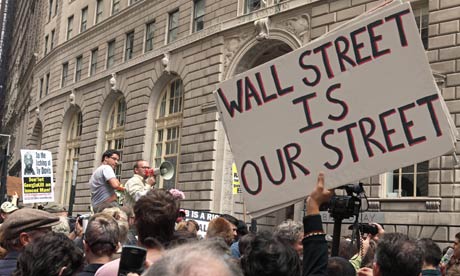Original Article written by Jonathan Cook - Wednesday 28, September 2011
There could be no better proof of the revolution – care of the internet – occurring in the accessibility of information and informed commentary than the reaction of our mainstream, corporate media.
For the first time, Western publics – or at least those who can afford a computer – have a way to bypass the gatekeepers of our democracies. Data our leaders once kept tightly under wraps can now be easily searched for, as can the analyses of those not paid to turn a blind eye to the constant and compelling evidence of Western hypocrisy. Wikileaks, in particular, has rapidly eroded the traditional hierarchical systems of information dissemination.
The media – at least the supposedly leftwing component of it – should be cheering on this revolution, if not directly enabling it. And yet, mostly they are trying to co-opt, tame or subvert it. Indeed, progressive broadcasters and writers increasingly use their platforms in the mainstream to discredit and ridicule the harbingers of the new age.
A good case study is the Guardian, considered the most leftwing newspaper in Britain and rapidly acquiring cult status in the United States, where many readers tend to assume they are getting access through its pages to unvarnished truth and the full range of critical thinking on the left.
Certainly, the Guardian includes some fine reporting and occasionally insightful commentary. Possibly because it is farther from the heart of empire, it is able to provide a partial antidote to the craven coverage of the corporate-owned media in the US.
Nonetheless, it would be unwise to believe that the Guardian is therefore a free market in progressive or dissident ideas on the left. In fact, quite the contrary: the paper strictly polices what can be said and who can say it in its pages, for cynical reasons we shall come to.

